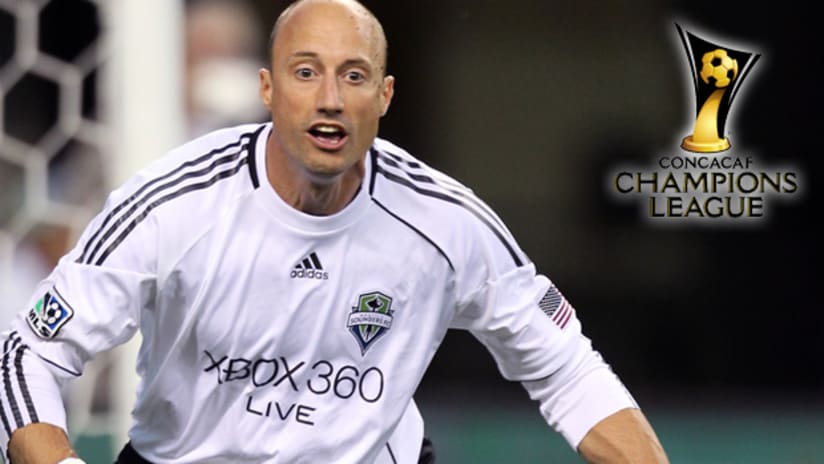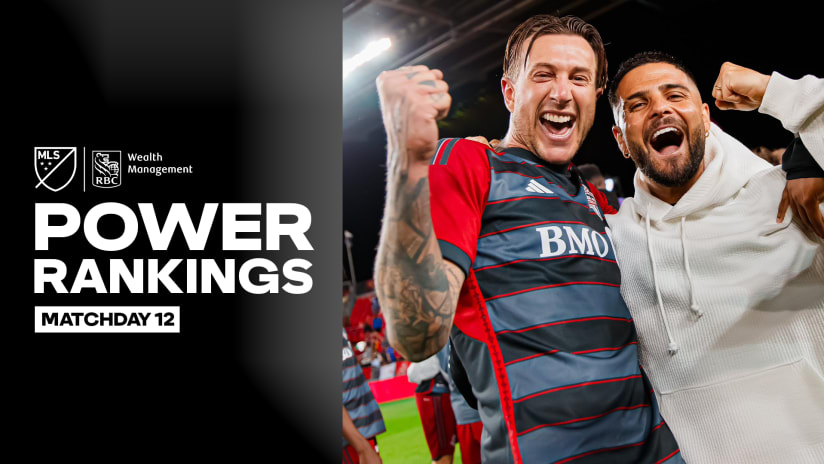SEATTLE — The Seattle Sounders’ journey through the CONCACAF Champions League ended in typical fashion. Against Saprissa on Tuesday night, two more mistakes doomed them to defeat—their fifth loss in six group-stage games.
Where did it all go wrong? For a club that’s been airtight in domestic competition, the key to success international competition has eluded the Sounders.
In the final analysis, their downfall was easier to determine. Here are three things that doomed Seattle:
Bad Mistakes at Crucial Times
Mistakes were certainly the reason for the loss at Saprissa. But throughout the competition, the Sounders made sloppy errors at critical moments.
[inlinenode:321269]Against Marathón, Tyrone Marshall and Kasey Keller miscommunicated to surrender a penalty kick just before halftime. Seattle ended up losing that match 2-1, putting the club in an early hole from which it would not escape.
Of the teams in Seattle’s Group C, Marathón turned out to be the most vulnerable. Failing to get even a point on the road against what would be the third-place team was a failure that was magnified as the group stage progressed.
"We never should have lost to this team,” Keller said after the loss in San Pedro Sula, Honduras. “We’re a better team and we gave up two soft goals.”
There were other mistakes, including Leo Gonzalez’s red card at Saprissa. One wouldn’t expect Seattle’s only Costa Rican player to get sent off in his home country, but the first-half dismissal effectively ruined any chances of Seattle advancing. When the Sounders slumped to a 2-0 defeat in that match, they found themselves with zero points after three matches.
A team-wide lapse in concentration led to three conceded goals in quick succession against Monterrey in the fourth match, but by that stage the club was hanging on to the competition with its fingernails.
Difficult Travel Schedule
If mistakes were made in the away games, is that evidence that travel took its toll on the team’s mental awareness?
Possibly. During the competition, Sigi Schmid noted that MLS teams that had to play the bulk of their matches on the road early in the competition were the ones that struggled. Certainly that was the case for Seattle, which played three of its first four CCL matches in Central America.
“We had a lot of tough games on the road, playing in tough places early where things may not necessarily go your way,” Roger Levesque said after Seattle’s CCL-ending defeat to Saprissa.
[inlinenode:321279]Looking at the MLS clubs that advanced — the Columbus Crew (runners-up, Group B) and Real Salt Lake (champions, Group A) — the evidence bears out Schmid’s assertion.
RSL played two of their first three at Rio Tinto, earning six points from those matches. The Crew played three of their first four at home, earning a perfect nine points in Columbus.
On the other side of the fence, Toronto FC played three of their first four on the road, earning just one point from those matches with a 0-0 draw at Cruz Azul. Faced with the same road schedule as TFC, Seattle claimed no points.
“My feeling has always been as a coach, and maybe in life, maybe it came down from my father to me, it’s just you deal with what you can deal with and you change what you can change,” Schmid said. “I can’t change the distance between Seattle and San Jose, Costa Rica or Columbus or anything like that. It’s something we have to deal with.”
The CONCACAF Learning Curve
There’s no question that the style of play varies across North America. While it’s difficult to make generalization across the entire CONCACAF region, the Central American teams generally play a more possession-based attack. Where they lack in terms of size and physical strength against MLS opponents, they make up in creativity and tenacity. They also engage in gamesmanship to an extent not seen in MLS and possess a potent home-field advantage.
[inline_node:318266]The Sounders definitely noticed the difference. The team just squeaked by tiny Metapán of El Salvador in the qualifying round, where it was taught a lesson against some of the continent’s best teams. While Seattle didn’t look outmatched in any of the six games, the fact that they only managed to get points out of one is a pretty strong indicator of the progress the team needs to make on the international level.
“There’s a learning curve playing against teams and players and styles of play that you’re not necessarily familiar with,” Levesque said.
Wrap up
The good news for Seattle is that, by virtue of their US Open Cup title, they’ll get another crack at the CCL next season.
While it’s a credit to the club to have qualified in its first season, the organization admits that there is certainly room for improvement. In one year’s time, the Sounders hope to improve on their fortunes in their maiden voyage in the North American competition.
"There's only four MLS teams in this tournament, if I'm not mistaken, and only three teams from America,” Schmid said. “It's an honor to be in that exclusive group for our franchise, especially as a second year franchise.
“All those experiences are going to make you better as you move forward. To be in this tournament and play the amount of games we've played this year will only make us better next year."












